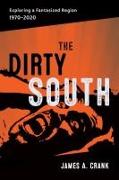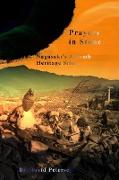Dirty South
BücherAngebote / Angebote:
The Dirty South examines the shifting significances of the South as a constructed, fantasized region in the American psyche. Offering the image of "the dirty South" to explore the social, political, and psychological (personal) consequences of its multiple manifestations and meanings in the national imaginary, James A. Crank considers the extent to which the South has been portrayed in a range of genres--from novels to films to comic books to popular music--quite differently since the end of the Civil Rights era. The phrase "dirty South" captures these portrayals starting in the year 1970 when the simultaneous pressure of the urban riots of the 1960s and the non-violence movement had faded from the scene in the years of the rightist backlash. This study traces a dirty South into our contemporary moment (arguably still an era of rightist backlash) to probe the sustained fascination of southern dirtiness, while simultaneously probing that fascination's causes and its consequences. Crank frames narratives of/about a dirty South as a multifaceted nexus producing conflicting and occasionally contradictory claims, primarily by juxtaposing the region with tropes of dirt: soil, garbage, trash, grit, litter, mud, swamp-water, slime, and pollution. He pays particular attention to the ways different artists and audiences put the dirt of the South to use. His analysis mobilizes the concept of a "dirty South" to examine the role the region plays in the national imaginary and the ways that southerners have used "dirt" to create/police boundaries and to contest those boundaries, with a focus on the period from 1970 to the present, when the South, emerging from the Civil Rights era, began to represent a number of new possible identities for the nation as a whole and for itself. Each chapter pairs prominent literary or cultural texts from the 1970s with popular works from the first decades of the twenty-first century that recycle similar investments or, critically, contest the inherent whiteness of the earlier images. The Dirty South argues both for a recognition of this representative trope and an affirmation of its endurance over the course of the last fifty years. In the end, dirty southern fantasies endure not because they locate a vein of authenticity or project an image of relevancy for the American South, but because they aid so conspicuously in the zombified work of tethering investors (real and imagined) to a graveyard of ideas"--
Folgt in ca. 15 Arbeitstagen




